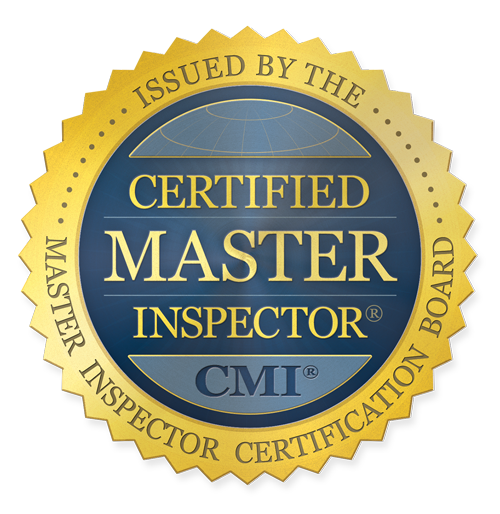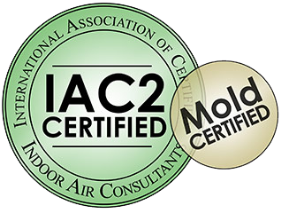There’s a lot involved in being a wise home shopper in 2020. If you are looking to buy a new home, you probably already have an extensive to-do list and enough expenses to worry about. There are realtor’s fees, taxes, closing costs, and more. In this situation, you may be wondering, “Do I really need a home inspection done too?”
Yes! You certainly do! That’s the short answer. In fact, home inspections don’t cost all that much to begin with, and they can actually save you money. Plus, they help you avoid numerous home-buying pitfalls – and may be required by your home insurance company anyway.
Here are the top 10 most important reasons you should get one or more home inspections done before finalizing the purchase of your next home.
1. It Adds a “Contingency” to the Contract
In most cases, there will be a home inspection contingency in the contract you sign to buy a piece of real estate.
That means that IF there are major problems discovered by the inspector that would cost you a lot of money to correct or that seriously lower the value of the property (relative to what you thought you were getting), you can walk away from the contract free of any penalty.
If you put earnest money down, you get it back. And you can’t be forced to buy. Those are the kinds of protections you need as a “house hunter!” Around one out of every seven homes under contract to buy never go through, and the home inspection contingency is a big reason why.
2. Home Inspections Are Very Cost-effective
For only a few hundred dollars, on average, you can have your prospective new home inspected. The inspector may discover structural problems, roof leaks, electrical problems or other safety issues, badly cracked foundations, and other problems.
Avoiding getting saddled with these sorts of unexpected issues can save you thousands of dollars in many cases. Think of it as very cheap insurance against the possibility of inadvertently buying the wrong house or the right house at the wrong price.
3. The Home Inspection Report Can Act as “Leverage”
Instead of just creating an “escape hatch” out of a contract, home inspections can also create “leverage” for the buyer in getting a better deal.
That could mean simply seeing the selling price lowered. Or, it could take the form of the seller agreeing to correct certain problems instead of leaving the new homeowner to do it at their expense later.
However, keep in mind that you can’t expect to negotiate over every tiny little issue. All homes, even brand new ones, will have some problems with them. But on anything major, you will have a good chance of reaching a reasonable deal with the current homeowner.
4. You Get the 4 Major Systems Inspected
In any home, there are four major systems that you will want looked at in a professional home inspection. An inspection that considers these exclusively is called a four-point inspection, but these same elements are included in full home inspections too.
When it comes to both safety, functionality, and future maintenance costs, it is likely to be the HVAC, electrical, plumbing, or roofing system that is at issue. Trained and licensed inspectors will go over these four systems meticulously in a standard 4-point home inspection.
5. Florida Winds Demand an Inspection
With the odds of a hurricane or other severe storm hitting your home sometime down the road, it makes sense to include a wind mitigation inspection. This can be done before or after buying your home.
Wind mitigation points will be tallied and can result in a discount on your monthly home insurance premiums. Upgrades will be suggested to make your new building safer and to bring it fully up to code (if necessary.)
6. Alert Against Wood-destroying Pests
In some local environments in Florida, there is a relatively high risk of termites or wood-eating beetles infesting a home and gradually destroying it.
A special kind of home inspection called a WDO (wood-destroying organisms) inspection can protect you against this possibility. Inspectors will look for signs of current or past inspections and for any wood that is decaying.
7. Ability to Look “Behind the Scenes”
Optionally, you can order an IR (infrared) inspection where inspectors use state of the art thermal imaging equipment to detect potential problems that are otherwise invisible.
For example, they can use this technology to find moisture buildup on concealed insulation or ventilation problems. This method is non-invasive and may help find an issue that can’t be conveniently detected by any other means.
8. You Can Pick & Choose Your Inspection Types
We mentioned a number of common types of home inspection just above. The beauty of it is that you can choose one of them or all of them. You can mix and match and build your own overall home inspection option.
A full home inspection or a 4-point only are the main options. And you can then decide whether or not to add on WDO, IR, or Wind mitigation based on the exact situation.
9. Florida Home Inspectors Are Highly Trained
In the state of Florida, you have to pass a 120-hour exam that is approved by the state and then submit an application for approval before becoming a licensed home inspector.
There is a lot of detailed training that goes into earning a home inspection license, and inspectors then get extensive on the job experience. A reputable local home inspection provider will be able to provide you with the highest level of service at a reasonable price.
10. You Will Have No Regrets
The bottom line is simple. No one ever says after buying a home, “I feel so bad I paid for a professional home inspection.”
Instead, they always seem to breathe a sigh of relief if nothing is wrong with the home they are interested in OR, if something is wrong, they benefit by improving the deal or by getting out of the contract.
To learn more about having a professional home inspection done in Central Florida, contact the experts at Super Inspection Pros today! We will give you a free consultation and a free, no-obligation quote.

